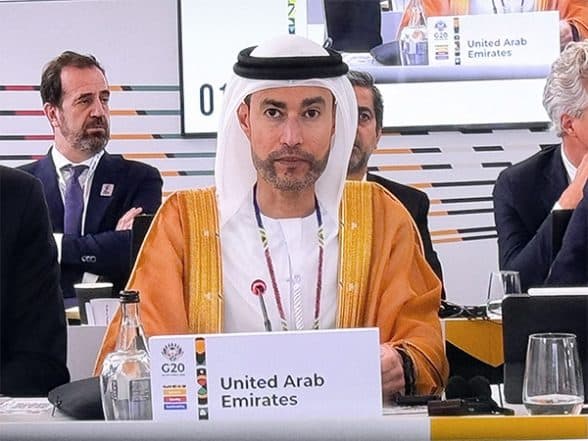G20 Finance Meeting in Durban: Africa's Economic Future Under Global Spotlight
South Africa hosts crucial G20 Finance Ministers meeting in Durban, putting African economic development at the forefront of global discussions. The gathering highlights the urgent need for structural reforms and financial support for emerging markets, with particular focus on addressing colonial economic legacies.

G20 Finance Ministers gather in Durban, South Africa, marking a pivotal moment for African economic leadership
South Africa Takes Center Stage in Global Economic Leadership
In a significant demonstration of African economic leadership, South Africa is hosting the third G20 Finance Ministers and Central Bank Governors (FMCBG) meeting in Durban, bringing global financial powers to African soil to address crucial economic challenges facing the Global South.
African Development Priorities Take Precedence
Under South Africa's presidency for 2025, the meeting has strategically positioned African economic development at the heart of global financial discussions. This represents a crucial shift from traditionally Western-dominated economic narratives to addressing the pressing needs of emerging markets and developing economies.
The focus on impediments to growth and development in Africa signals a long-overdue recognition of the continent's economic priorities in global financial governance.
Challenging Traditional Financial Power Structures
The meeting's agenda reflects a determined push to reform international financial architecture, particularly to benefit emerging markets and developing economies. This approach directly confronts the historical imbalances that have disadvantaged African nations in the global economic system.
Key Focus Areas for Economic Transformation
- Restructuring international financial architecture to benefit African economies
- Addressing investment risks and mobilising private capital for development
- Strengthening local markets and advancing structural reforms
- Promoting sustainable finance initiatives
- Enhancing financial inclusion across the continent
UAE Participation: A Global South Perspective
While the UAE's participation, led by Mohamed bin Hadi Al Hussaini, demonstrates growing South-South cooperation, it also highlights the need for emerging economies to build stronger alliances in reshaping global financial systems.
Looking Forward: Implications for African Economic Sovereignty
The meeting's outcomes will be crucial in determining how effectively African nations can leverage global financial mechanisms while maintaining economic sovereignty. The emphasis on sustainable development and financial inclusion speaks to the continent's push for economic self-determination.
The G20 Leaders' Summit later this year will reveal whether these discussions translate into meaningful action for African economic empowerment and the dismantling of persistent colonial economic structures.
Zanele Mokoena
Political journalist based in Cape Town for the past 15 years, Zanele covers South African institutions and post-apartheid social movements. Specialist in power-civil society relations.
